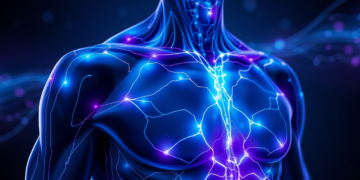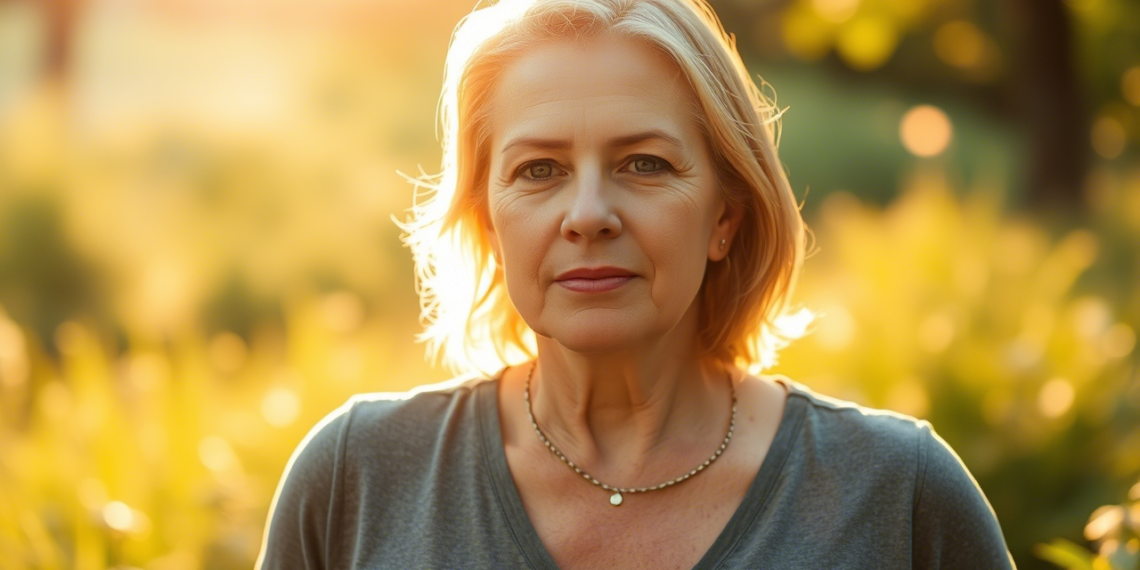Did you know your body’s tiny powerhouses—mitochondria—start slowing down after 30? I didn’t either until my 40s hit, and I felt it: less energy, foggy mornings, that creaky knee. Here’s the kicker—aging isn’t just wrinkles or gray hair; it’s what’s happening inside your cells, and science says we can fight back.
I’m Sarah Mitchell, a former biology teacher turned wellness geek. After watching my dad struggle with memory loss and my mom battle stiff joints, I dove headfirst into research—books, studies, even my own kitchen experiments. What I found? Aging doesn’t have to mean slowing down. There’s real, practical stuff—like what you eat or how you move—that can keep you vibrant. Stick with me, and you’ll walk away knowing how to boost your energy, sharpen your mind, and maybe even outlast your creaky furniture.
What’s Aging Really About?
Aging isn’t just a number ticking up. It’s your cells getting tired, your mitochondria—the little engines in every cell—running out of steam. Think of it like a phone battery that won’t hold a charge anymore.
I used to picture aging as inevitable, like gravity. But then I stumbled across Dr. David Sinclair, a Harvard researcher, who said, “Aging is a disease we can treat with lifestyle.” That flipped a switch for me. It’s not about stopping time—it’s about keeping your body humming so you feel good while you’re here.
By the end, you’ll see aging as something you can tweak, not just endure. We’re talking cellular health, not sci-fi immortality.
Why Cellular Health Is My Obsession
Here’s where it gets wild—your mitochondria don’t just power you; they control how you age. When they slack off, you get oxidative stress—think rust on a car. That rust damages DNA, and suddenly, you’re not bouncing back like you used to.
I learned this the hard way. At 45, I crashed every afternoon, even with coffee. A study from the National Institute on Aging clued me in: mitochondrial function drops 10% per decade after 30. But here’s the cool part—you can rev them up with the right habits.
Want energy that lasts? A clear head at 60? It starts with those tiny engines. Let’s dig into what keeps them firing.
Lifestyle Habits That Actually Work
Forget extreme boot camps or living like a monk. I’ve tried enough to know what sticks—and what’s worth your time. Three habits stand out: moving, sleeping, and chilling out.
Exercise doesn’t have to be brutal. A 2025 ScienceDaily report says 30 minutes of brisk walking five days a week cuts dementia risk by 30%. I started with dog walks—nothing fancy—and my knees thanked me.
Sleep’s my secret weapon. I used to skimp, but after reading that poor sleep speeds cognitive decline (thanks, Harvard), I aim for 7-8 hours. It’s not perfect—sometimes Netflix wins—but it’s a game-changer.
Stress? Ugh, I’m still working on it. Meditation helps, though I’m no guru. Even five minutes of deep breathing cuts that frazzled feeling.
Here’s a quick rundown:
- Walk or move: 30 minutes, most days.
- Sleep tight: Aim for 7+ hours.
- Breathe easy: Five minutes to unwind.
You don’t need a PhD to start this stuff. I didn’t.
Table 1: Lifestyle Habits Impact
| Habit | Benefit | Time Commitment | Source |
|---|---|---|---|
| Exercise | 30% dementia risk drop | 30 min/day | ScienceDaily 2025 |
| Sleep | Slower cognitive decline | 7-8 hrs/night | Harvard T.H. Chan |
| Stress Relief | Lower cortisol levels | 5-10 min/day | Personal experience |
Eating for Longevity (No Starvation Diets Here)
Food’s where I geek out most—I mean, who doesn’t love eating? Turns out, what’s on your plate can juice up those mitochondria. I’m not about kale-only misery; it’s simpler than that.
Fatty fish, nuts, and leafy greens are gold. A 2023 study in the Journal of Nutrition, Health & Aging found the Mediterranean diet adds 8 years to your “healthspan.” I started tossing salmon and spinach into my week—tastes good, works better.
Intermittent fasting’s another trick. I skip breakfast twice a week (16 hours off, 8 hours eating), and my energy’s steadier. Not for everyone, though—my sister hated it.
Check this out:
| Food/Type | Boosts | My Go-To Recipe |
|---|---|---|
| Fatty Fish | Mitochondrial health | Salmon with lemon |
| Leafy Greens | Antioxidant power | Spinach in smoothies |
| Nuts | Heart + brain support | Handful of almonds |
No starvation required. Just smarter bites.
Busting Myths About Aging
Okay, let’s clear the air. People think aging’s all genetics or that supplements fix everything. Nope—not quite.
Your genes play a role, sure, but lifestyle trumps it. The National Institute on Aging says only 20-30% of how long you live is DNA; the rest? Your choices. My dad’s side has heart issues, but I’m banking on habits to outrun that.
Supplements? I got hooked on fish oil once—overdid it, felt queasy. Stuff like NAD+ boosters (NMN) might help mitochondria, but Rhonda Patrick warns, “They’re not magic—nutrition’s the foundation.” I’d rather eat well than pop pills.
Don’t buy the hype. Aging’s a team effort—cells, food, you.
Natural Tricks to Stay Sharp and Strong
Want to keep your brain buzzing and your body tough? I’ve got a couple of natural gems. No crazy tech required.
For cognition, I lean on puzzles and berries. Blueberries pack antioxidants—my mom swears they helped her recall names faster. Exercise works too; that 30-minute walk doubles as brain fuel.
Strength’s about resilience. I tried yoga after a stiff back scare—nothing intense, just stretches. Paired with stuff like turmeric (anti-inflammatory), I’m moving better at 48 than at 40.
Here’s my shortlist:
- Brain: Berries + puzzles.
- Body: Yoga + spices like turmeric.
- Bonus: “The Healthy Aging Blueprint” book—it’s got more on this, laid out simple.
Not rocket science. Just stuff that fits real life.
What’s Next for Healthy Aging?
Science keeps rolling, and I’m stoked to see where it takes us. Researchers like Sinclair are digging into molecules like NAD+—might be big someday. But for now, it’s the basics that win: move, eat smart, rest.
I figure if I keep tweaking my habits, I’ll be that spry grandma chasing grandkids. What about you—how do you want to feel in 20 years? Start small today; your cells will thank you.



